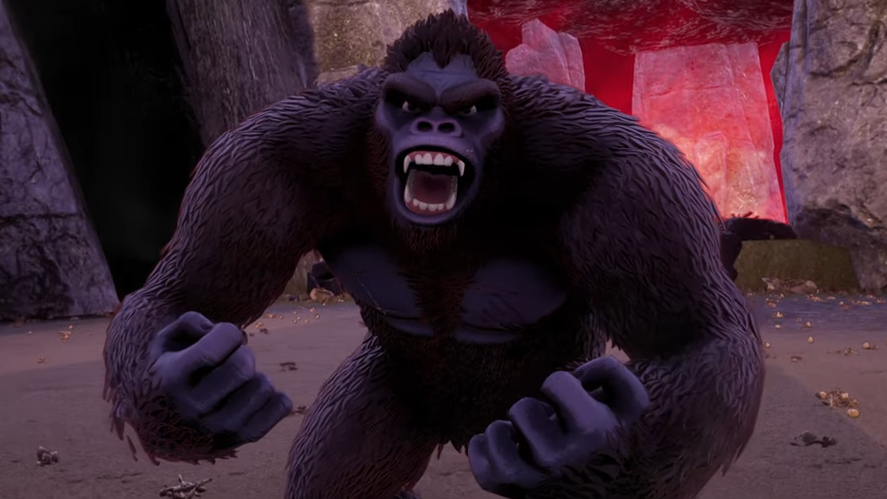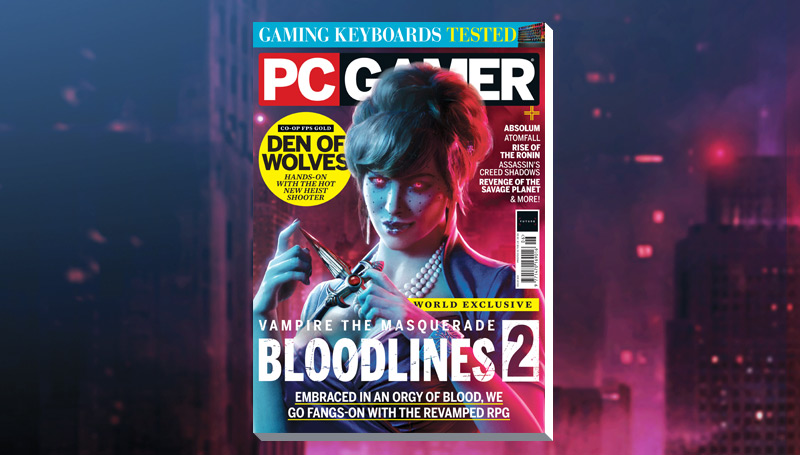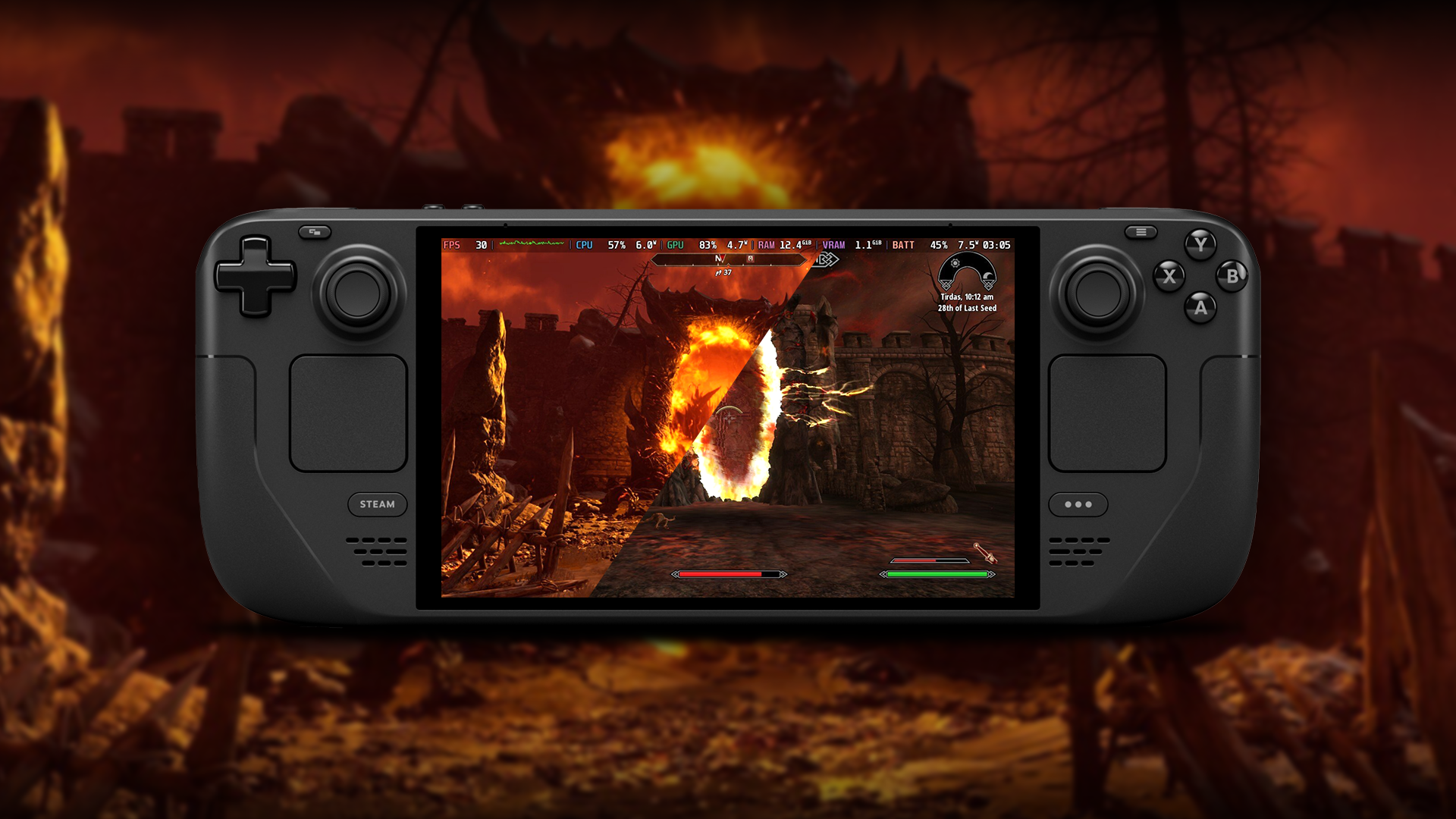Skull Island: Rise of Kong was released on Steam on October 17, and if you use any of the various social media platforms you’ve probably already seen clips and stills from it. The various algorithms have all reached the same conclusion: this thing is comedy gold, and people are revelling in a dunkfest at its expense. In particular, it’s being compared to Daedalic’s Lord of the Rings: Gollum, which has been unfairly labelled by some as the worst game of the year (it’s not great, but such a label is ludicrous).
But what exactly is it about this King Kong game that’s inspired such a collective reaction? The game is developed by Iguanabee Entertainment, a Chilean studio that seems to fund its own original titles by developing the odd licenced property—often leaning towards childrens’ brands, such as 2020’s GI Joe: Operation Blackout (Steam reviews: mixed).
This business model is a long-established way of keeping the lights on for small and medium studios, to the extent even the likes of PlatinumGames operate in the same way. What’s also notable is that the studio’s original games have much better reviews than the licensed stuff, with the latter being archetypally average. Skull Island: Rise of Kong definitely fits the bill here, and its aesthetic skews younger, perhaps hoping to attract some of the audience for Netflix’s Kong: King of the Apes and in particular the recent Skull Island animated series (the rights for King Kong are an utter mess incidentally, and have been for the character’s entire existence).
So Skull Island: Rise of Kong is fairly typical of the older style of licensed games. It’s an uncomplicated 3D platformer with a bit of jank, a big brand that will hopefully shift a few copies, and some chronically bad cutscenes. I suspect the brand is the main factor in its unwelcome viral popularity: everyone knows what King Kong is, and then comparing it to another recent high-profile flop seems an obvious step.
There’s even a vestigial Peter Jackson link between this and Gollum, with Lord of the Rings’ contemporary popularity overwhelmingly due to his film trilogy, and the director having also helmed a King Kong reboot that saw a lavish Ubisoft tie-in game. Plenty of people have been comparing that 2005 title to this new release, but this seems wildly unfair. 2005’s Peter Jackson’s King Kong was a surprisingly ambitious and in places very fun game that was made by one of the world’s biggest developers with Jackson’s involvement, and the concept of being a true companion piece to a Hollywood movie. The comparison to Skull Island: Rise of Kong is perhaps a no-brainer in terms of subject matter, but also feels rather pointless. These are simply games produced on a different scale, with different levels of resource.
But Skull Island: Rise of Kong is not some unfairly maligned gem, either. It is obvious that this is a game that, quite outside of its basic combat and questionable visual style, has some serious bugs and glitches, particularly it seems during cutscenes.
Actual cutsceneDO NOT BUY THE NEW KING KONG GAME. IT IS A COMPLETE SCAM pic.twitter.com/6hiCWOSnNcOctober 16, 2023
The new King Kong game is facing backlash for costing $40 and showcasing this kind of gameplayI say game of the year pic.twitter.com/J1qMI0osNnOctober 17, 2023
New King Kong game looks like game of the year material pic.twitter.com/TXuZYQ53ELOctober 16, 2023
“Gameplay” of Skull Island: Rise of Kong.This costs 40 dollars and is made by people that make low effort shovelware with big IP franchises.The modern LJN pic.twitter.com/YjHqOeoosrOctober 16, 2023
These days, releasing a game with these kinds of problems is almost asking for it, and the internet has certainly delivered. People are poring over this game to find the flaws and justify that “worst game of 2023” tag, and, it has to be said, are finding dodgy moment after dodgy moment.
Thing is, if you watch the first couple hours in the gameplay video below, it’s clear these moments don’t really represent the game. Skull Island: Rise of Kong looks pretty average, for sure, but I can confidently say I’ve played a lot worse, and my young son (who loves the Netflix Kong animation) would probably quite enjoy bashing through it—just like I devoured various formulaic licenced titles when I was a kid.
Skull Island is now the latest subject of a feeding frenzy. It’s perfectly natural to criticise bad games, and lord knows I’ve written some reviews in my time that are on the meaner end of the spectrum. What’s a little odd to watch is how, when this is combined with the virality of social platforms, it’s not enough to say a game’s bad and terrible: it has to be ripped apart, made to look even worse than it is, and labelled as “shovelware” or, even more ludicrously, a “scam”.
The language around bad games is often silly and overblown. This applies especially when it comes to those who play games to make content about them more than to enjoy them. Skull Island is fair game for criticism nevertheless, and things probably wouldn’t have been so bad if it wasn’t for the $40 price tag, which its negative Steam reviews focus on. There is one that made me laugh: “Iguanabee games,” writes Zin, “more like iguannebee rid of this game from my Steam library.”
I’ve been playing videogames a long time and there have always been bad, awful, trashy ones. I’ve played a ton. You could say exactly the same about books, movies, music, you name it, and the weird thing is that the bad ones are often fun regardless or have some redeeming silliness to them. rarely is something so utterly dire I feel I’ve wasted my time, even if I wouldn’t recommend it.
But there’s something about our ecosystem where it’s not enough to say something’s bad: These products are treated as an affront, framed as attempts to hoodwink the consumer, and ripped to shreds without any sympathy for the nature of the beast. I suppose, at least in that sense, the King Kong licence really does fit.











